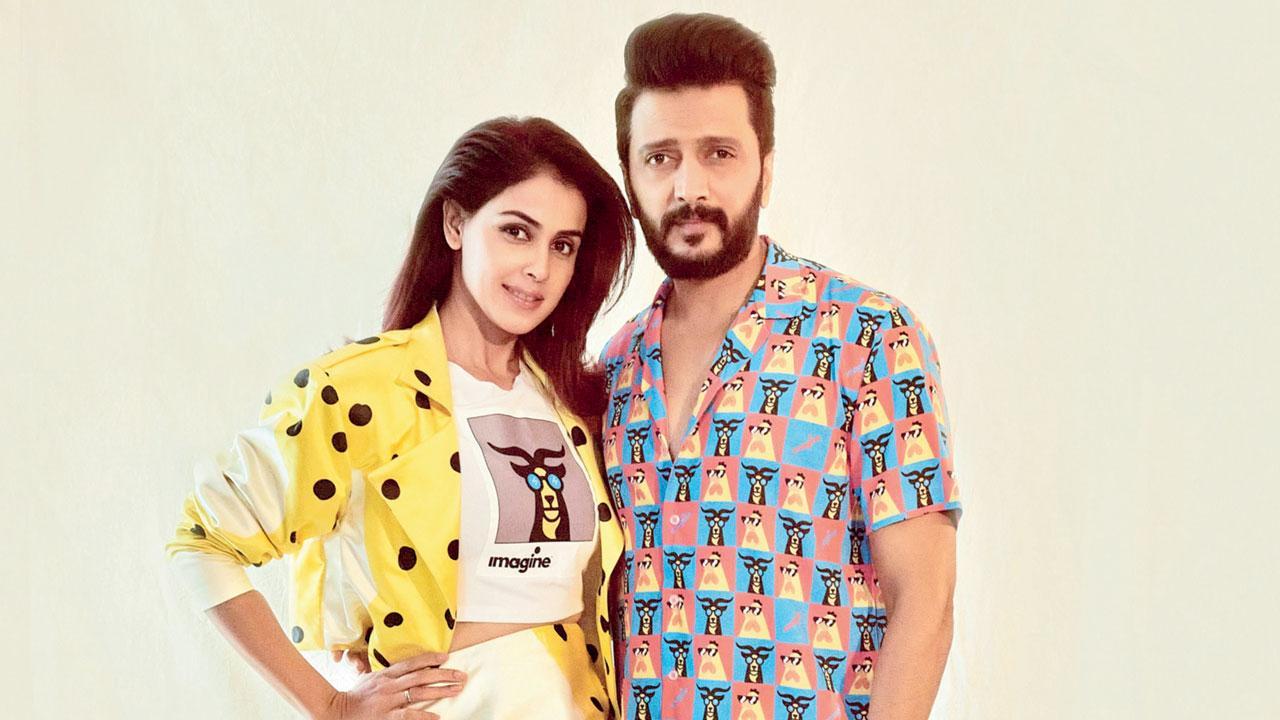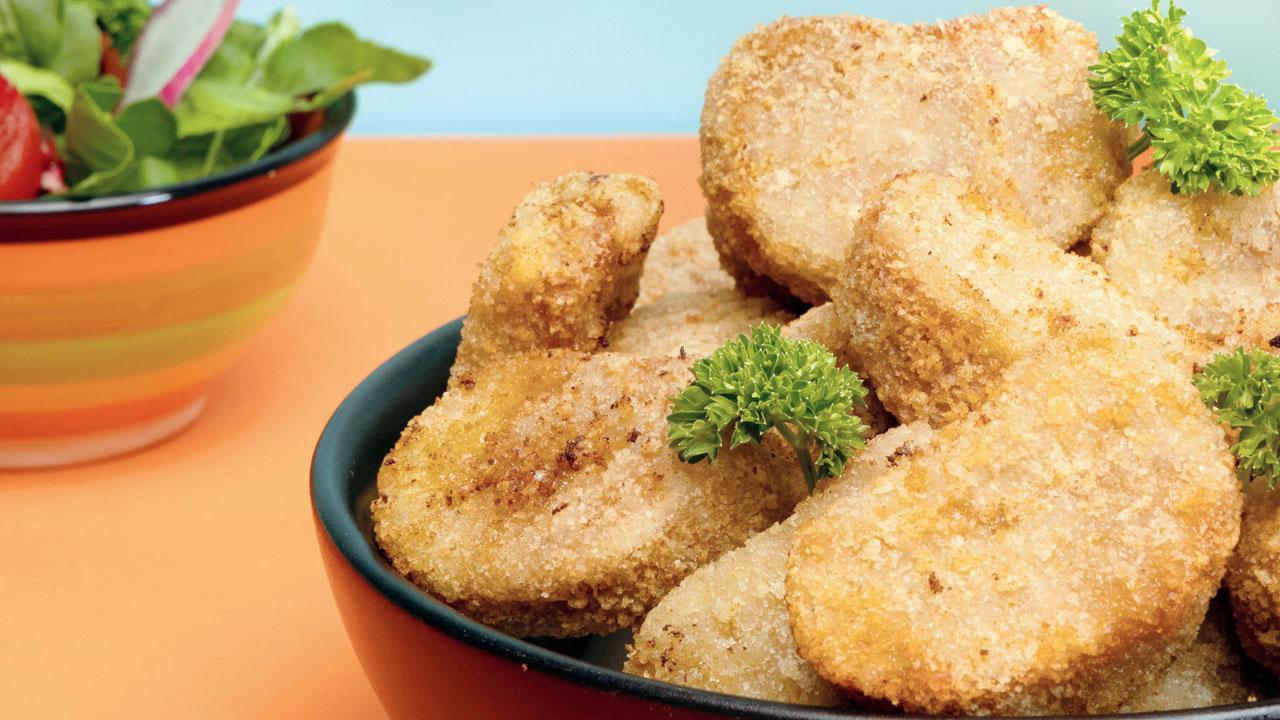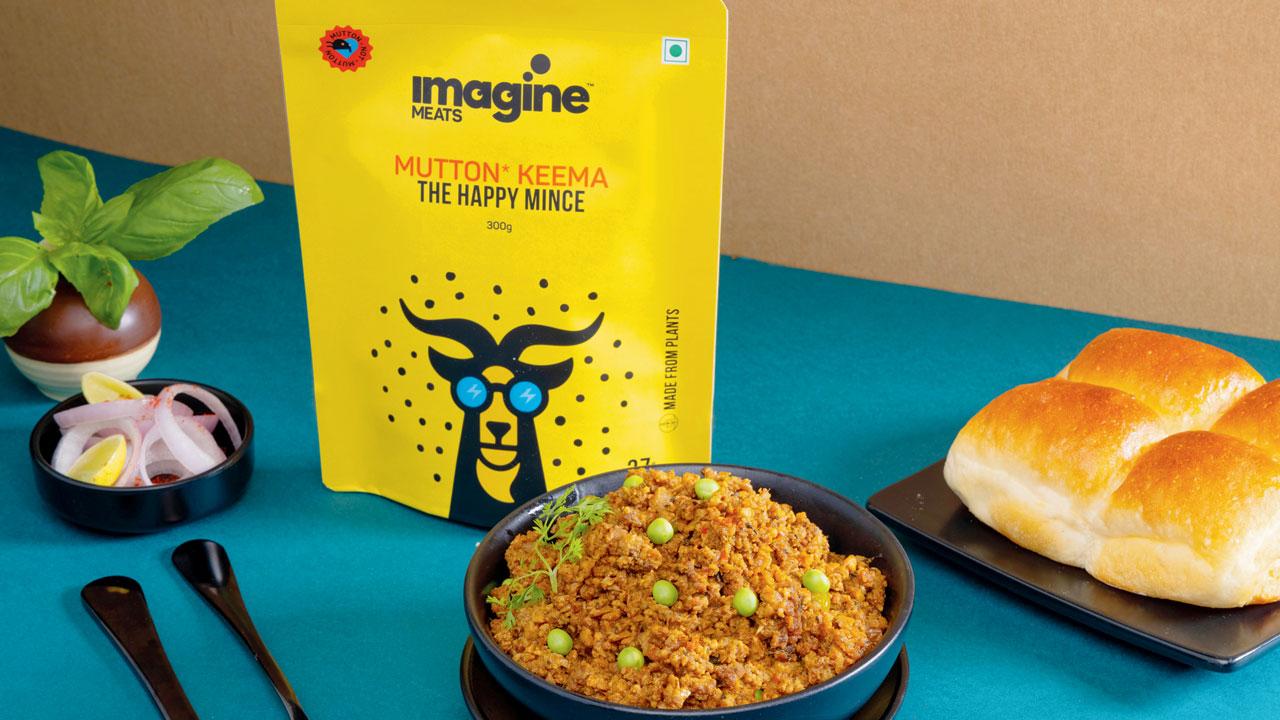From meat lovers to vegans to now plant-based business owners, Bollywood couple Genelia and Riteish Deshmukh discuss their journey to saving the planet—one tasty meal at a time

Genelia and Riteish Deshmukh say they collaborated remotely with scientists in the US and Berlin during the first lockdown and came up with a way to bring the protein needed for these meals down to India
We never imagined we’d be talking about this!” gush actors Genelia and Riteish Deshmukh when describing how they started their new plant-based meat brand Imagine Meats this year. As once-upon-a-time non-vegetarians who loved to gorge on all meats, it wasn’t until five years ago when they jointly decided to turn vegan. “I’d chosen to take a vow against animal cruelty and live a life that’s cleaner and more sustainable for the future,” says Riteish.
ADVERTISEMENT
Of course, he did realise that this is much easier said than done. “Food is a source of happiness for most people. For anyone who chooses to make the switch, there’s always some sort of compromise where you live with the decision you’ve made and move ahead with whatever you can get. While I loved the idea of eating ethically, which, in turn, is healthier and good for the environment, I constantly wondered how I could continue eating food without compromising on the flavour and taste [I craved].”

“Chicken” nuggets
At the same time, Genelia went on to pursue a course in nutrition from Cornell University to delve further into the subject. She, however, wasn’t entirely convinced at first. “I constantly wondered how I’d get enough protein in my meals. And, if it was a diet followed by my kids, as well, it had to be well-rounded and correct—I was never going to compromise on their health in any way.” She discovered how most of us aren’t aware of what the right sources of protein and fats are, and that animals, in turn, get their proteins from plants. “It’s not that I felt or thought I was unhealthy before, but the moment I started eating vegan meals, I noticed an instant difference—I felt less lethargic.”
As a mother of two, Genelia says her life certainly orbits around her children, Riaan and Raahyl. “You realise you need to leave behind a better world for them. I was a lifelong guilty non-vegetarian—I used to say I’m against animal cruelty, but I can’t give up meat. My son put things into perspective when he said, ‘Aai, you can’t love your dog and then kill a chicken!’”

Plant-based sausages
While food is a source of comfort, there has been a growing awareness about having mindful eating habits and the benefits of a plant-based diet across the globe. The most recent contribution to this over the past couple of years has been the 2018 documentary The Game Changers by James Cameron, Arnold Schwarzenegger and Jackie Chan, which highlighted the reasons why top athletes were slowly picking plants over meat for better recovery time, fewer injuries, faster pace, increased stamina and stronger focus.
The couple is quick to note that they’ve had the benefits of an all-round non-vegetarian diet growing up, and wondered if cutting out meats for their kids would hamper their energy or health in any way. However, the family now hikes up 15 kilometres a stretch without facing exhaustion.
A month into turning vegan, Riteish remembers experiencing strong cravings for meat. But he had to find a way around it. “We came across a few plant-based meats during our time in the United States, and picked up a few burger patties to cook at home. Genelia minced it down to whip up some kheema pav, and I thought, ‘If I get this every day, I won’t feel like I’m missing out on anything.’”

Soya kheema
In order to get people to dip their toes into a plant-based diet, it was important to get the flavour and cooking time accurate for each dish. With Imagine Meats, the couple has launched nine ready-to-prepare meals that range from Afghani and Chettinad biryani to burger patties and “chicken” nuggets with prices starting at R395. They have consciously kept the price point affordable to make vegan dishes more accessible. After working remotely with scientists in the United States and Berlin during the first lockdown last year, they came up with a way to bring the protein needed for these meals down to India and create a facility to prepare it here. “Sometimes, the meat would feel too pasty or the pieces would be too large, leaving the outside crust hot and the inside tasting cold and raw. Sufficient research and technological experimenting went in to get the right size, texture.”
When deciding what recipes would make the cut, the couple was keen to provide meals that could be eaten at different times of the day from breakfast to dinner, and even snack time. “Meat isn’t present only in generic dishes. Every community and city has their own recipes, masalas and preparations, and we want to create a plant-based alternative to continue celebrating and eating them,” he says.
While the younger generation is more supportive of following a mindful way of eating, Genelia thinks they often don’t have the right resources or options to turn to. “While researching for this venture along the way, I served nuggets on my children’s birthday. Any mother knows this is possibly the worst thing to serve your kids because it’s made up of waste meat. With a plant-based alternative, you’re getting to eat a guilty pleasure without feeling so guilty about it.”
If you have been a lifelong meat-eater, it is hard to know where to start. For Riteish, it’s not about becoming vegan overnight—you could try being a flexitarian and replace a few meats to do your bit for the planet and save animals. “A simple dal-chawal meal is vegan if you don’t add any ghee or butter to it. The important thing to focus on is how healthy a meal is and how much protein it has—especially in our country which is known to be largely deficient in it,” he says. Even being vegan one day in week makes a big difference in the long run, thinks Genelia. You won’t know until you try it.
Why plant-based meats aren’t just for vegetarians
>> Vegan meats have a high percentage of protein that is derived from alternative sources such as pea protein and soy protein.
>> These meats are cholesterol-free without any added animal hormones or antibiotics injected into them, making it cleaner and healthier to consume.
>> When compared to regular meat, these plant-based alternatives have lower calories and saturated fats, with higher protein and fibre.
>> Reducing the intake of saturated and trans fats can lower your risk of developing chronic diseases such as type 2 diabetes; while more fibre in your diet can reduce the risk of developing breast, colon, and other digestive-related cancers.
>> However, most plant-based meats have been found to have higher levels of sodium to make them more palatable and shelf-stable. While it is eventually a processed food, it can fit into a healthy diet when eaten in moderation.
Also Read: Shah Rukh Khan launches Riteish and Genelia Deshmukh's plant-based 'meat' brand
 Subscribe today by clicking the link and stay updated with the latest news!" Click here!
Subscribe today by clicking the link and stay updated with the latest news!" Click here!







